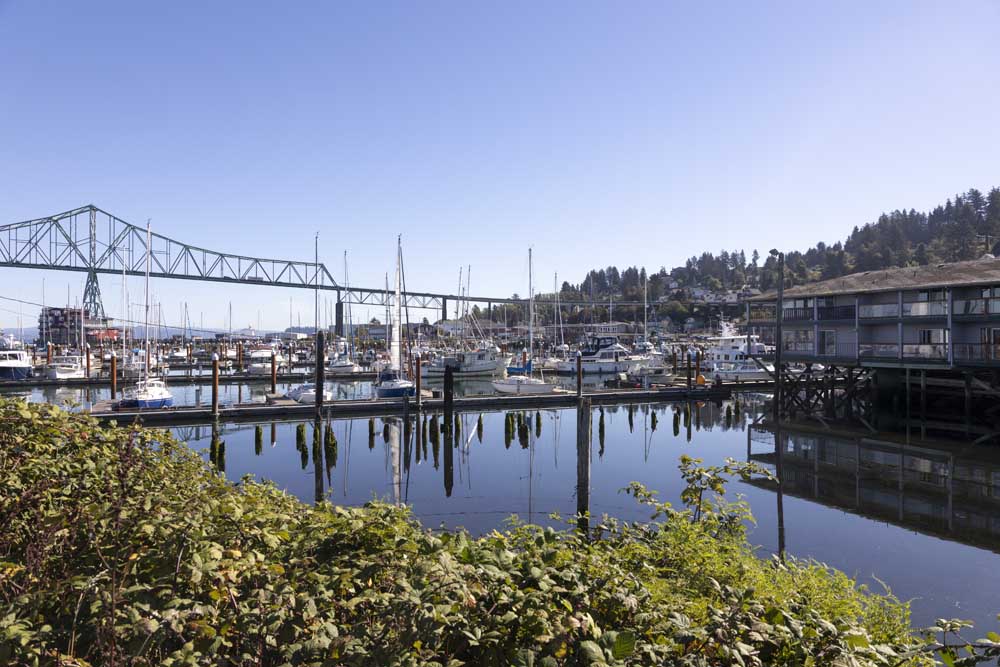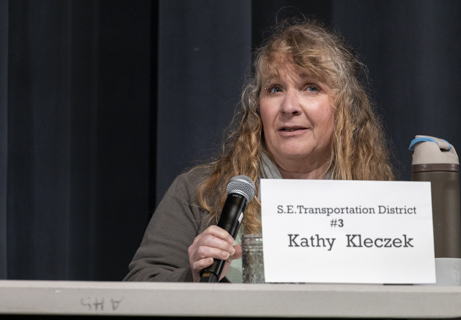Forestry dean’s troubles were self-inflicted
Published 5:00 pm Tuesday, May 23, 2006
Finally, somebody called Hal Salwasser’s number as a timber partisan.
On Friday, an Oregon State University investigatory committee accused the dean of OSU’s College of Forestry of displaying a “narrow bias” toward timber fiber extraction, violating university rules against officially advocating legislation (the rapacious Walden-Baird salvage logging bill), and collaborating with timber interests to attack the nationally peer-reviewed study of his own graduate student, Dan Donato, that found that timber harvests of burned-over forests can do more harm than good.
Following a campuswide discussion of the report, the committee called for a vote on whether the dean can “lead the college through the changes needed to thrive in the future.” Salwasser will make a formal response to these events, then the matter goes to the university administration for, presumably, a decision on Salwasser’s future at OSU.
Knowledgeable observers have known for years that the forestry school – supported in part by revenue for logging state lands – has been close to timber interests, unlike top schools such as the State University of New York’s (SUNY) School of Environmental Studies and Forestry and Yale’s School of Forestry and Environmental Studies. But the cozy relationship remained one of Oregon’s shabby, muttered secrets until early this spring when Salwasser violated Donato’s academic freedom to advance the political agenda of the Oregon timber industry – and triggered a national controversy.
Then Donato published an article describing his research in Science, one the nation’s premier academic journals, all hell broke loose in Oregon timber industry boardrooms. The article was a high academic honor for Donato, for the journal subjects its scientific articles to rigorous peer review.
Yale or SUNY’s deans of forestry would likely have proudly told the world about such an achievement by their graduate students. Not Salwasser. A review of Salwasser’s e-mails, which the investigating committee studied for several weeks – and which I’ve read – leaves little doubt that dean’s concern was to manage the ire of the industry – many of them donors to the college who besieged him with calls and messages – and to discredit the Donato study that posed a political threat to the industry-backed Walden-Baird bill.
Salwasser belatedly congratulated his student, Donato, for an academic achievement many members of his faculty have never achieved. But other e-mails document that Salwasser also coached his timber-friendly professors in an ill-fated attempt to quash the Science article – a breach of academic freedom that may be the greatest sin in halls of academe.
Moreover, while a nationally peer-reviewed study about wildfire and logging made Salwasser go ballistic, he seemed unperturbed about a non-peer-reviewed report by College of Forestry Professor John Sessions. Sessions, whose academic credentials are in forest road engineering, hired out to the timber-happy Douglas County board of commission, and – surprise! – “found” that the government could log 2.5 billion board feet in the Siskiyou National Forest’s Biscuit Fire area with salutatory environmental effects-though it would mean invading roadless areas and other ecologically sensitive areas.
That volume is greater than combined annual Forest Service timber sales in Oregon and Washington over several years. The Sessions Report was seized by Greg Walden, Brian Baird and the Bush Administration as justification for accelerated salvage logging that short-circuits the Environmental Policy Act.
Adding to the irony, Salwasser was apparently also unperturbed that John Sessions failed to select a single forest conservation biologist for his research team. This is odd behavior for a college that boasts of being a “world-class teaching and learning center … in sustaining ecosystems, managing forests, and manufacturing word products.
Reporter Michael Milstein of The Oregonian writes, “(Salwasser) took responsibility for what he called ‘stupid and inappropriate’ (actions) that caused harm to the college and to some individuals.”
The question for the College of Forestry and OSU is broader than Salwasser’s self-confessed stupidity.
The question is whether the School of Forestry will be a place that faculty timber theologians consider a logging seminary – or an independent institution, one of national academic excellence, in which forest ecosystems are rigorously examined for both their short-term mercantile potential and their natural gifts.
OSU’s reputation calls for a change of culture at the College of Forestry. The investigative committee recommends as much. The place to start is with Salwasser, who in e-mails described forest ecologists who support Donato’s findings as “goons” and opposed the House-passed Walden-Baird bill.
His comment would seem to include 169 top forest scientists who told Congress they opposed the Walden-Baird logging bill for reasons very similar to Donato’s findings.
Former Congressman Les AuCoin is an Ashland writer. He is a co-author of the book, Wildfire: A Century of Failed Forest Policy, due in July by Island Press.





